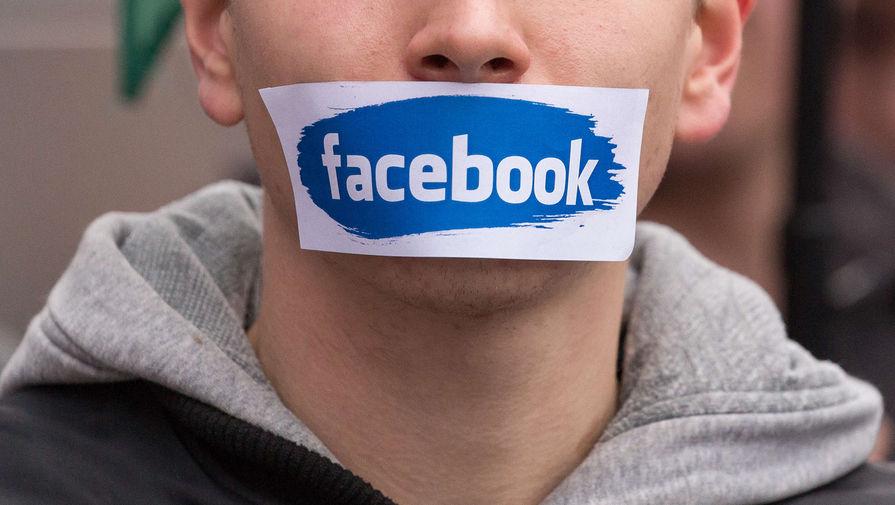
Facebook money controversy
For internal use, Facebook employees reportedly initially referred to the corporate version of the cryptocurrency as GlobalCoin. However, in recent months, another name has become popular in the media - Libra. Rumor has it that this digital money will be put into circulation in several countries as early as the first quarter of 2020. However, orthodox blockchains do not recognize them as true cryptocurrencies.
The head of Facebook, told the BBC in the spring Mark Zuckerberg (1) met with the Governor of the Bank of England and asked for legal advice from the US Department of the Treasury on the planned digital currency. The Wall Street Journal reported that in connection with its implementation, the company hopes to cooperate with financial firms and online retailers.
Matt Navarra, a social media expert, told Newsweek that the idea of implementing cryptocurrency on Facebook websites makes a lot of sense, but the blue platform could face huge resistance from lawmakers and financial institutions.
Navarre explained
When news broke about Libra, the US Senate Committee on Banking, Housing, and Urban Affairs wrote to Zuckerberg asking for more information on how crypto payments would work.
Strong group of companies
Facebook has been trying for years to "fix" the way we transfer and receive money. Historically, it has already offered products such as the so-called. lendingwhich allowed you to buy items in the once very popular Farmville game, and the function sending money friends in messengers. Zuckerberg led his own cryptocurrency project for several years, gathered a team of people and financed the project.
The first person involved in the development of a currency based on Morgan Bellerwho began work on the project in 2017. In May 2018, Vice President of Facebook, David A. Marcus, moved to a new department - blockchain. A few days later, the first reports appeared about the planned creation of a cryptocurrency by Facebook, for which Markus became responsible. By February 2019, more than fifty specialists were already working on the project.
Confirmation that Facebook is going to introduce cryptocurrency first surfaced in May 2019. The Libra project was officially announced on June 18, 2019. The creators of the currency are Beller, Markus and Kevin Vale.
However, there are a few things that need to be cleared up.
Firstly, the Libra digital currency itself is one thing, and the other is a separate product, Calibra, which is a digital wallet that houses Libra. The Facebook coin is significantly different from other cryptocurrencies, although the most important feature - security with strong encryption algorithms - is preserved.
Unlike other cryptocurrencies such as Bitcoin, the user does not need to worry about the inner workings of blockchain technology in order to use this money effectively. The currency is used in the Messenger and WhatsApp apps they belong to. No need to worry about setting up, storing a wallet, or anything else. Simplicity must go hand in hand with lightness and versatility. Facebook Money, in particular, serves as a means of payment when traveling abroad. Local merchants would accept it, for example, using a smartphone. The goal is to be able to use Libra to both pay bills, subscribe to Spotify, and even buy physical items in stores.
The creators of "traditional" cryptocurrencies such as Bitcoin, Ethereum and Ripple have focused on technical details rather than marketing the concept to consumers. Meanwhile, in the case of Libra, no one cares about terms such as “contracts”, “private keys” or “hashing”, which are ubiquitous on most product websites, such as. Also, unlike Bitcoin, the funds in Libra were based on real assets that the company uses to back the value of the currency. Essentially, this means that for every zloty deposited into a Libra account, you buy something like a “digital security.”
With this decision, Libra can be much more stableand than other cryptocurrencies. While HuffPost called investing in Libra an "extremely stupid investment," the idea could nevertheless help build confidence in Facebook's currency and ease fears of a market panic as people withdraw more money than is actually available. On the other hand, for this reason, Libra also remains prone to inflation and other fluctuations in the value of money, much like what happens to traditional currencies controlled by central banks. In essence, this means that there is only a limited amount of Libra in circulation, and if people buy in large quantities, the price can rise - just like with real world currencies.
2. Libra logo among the companies collaborating with this project.
Libra will be controlled by a consortium of companies, also often referred to as "association"(2). They can throw or limit the feed to stabilize the speed. The fact that Facebook mentions such a stabilization mechanism means that it will not be able to deal with it alone. It talks about thirty partners, all of which are leading players in the payments sector. This includes VISA, MasterCard, PayPal and Stripe, as well as Uber, Lyft and Spotify.
Why such interest from such different entities? Libra completely excludes intermediaries from the circle of companies and people who accept it. For example, if Lyft wants to start a business with a small number of credit cards, it must implement the iDEAL national customs payment system to enter the market, otherwise no one will use this service. Scales come to the rescue. Technically, this would allow these companies to seamlessly launch services targeted at customers who don't need a credit card or bank account.
Governments don't need Facebook currency
Following the scandal of the Cambridge Analytica user data leak and evidence of Zuckerberg's failure to properly secure his own platform, The US and many other governments have little confidence in Facebook. Within XNUMX hours of the announcement of the plan to implement Libra, there were signs of concern from governments around the world. In Europe, politicians stressed that it should not be allowed to become a "sovereign currency". US senators called on Facebook to stop the project immediately and called on the portal's management to hold hearings.
French Finance Minister Bruno Le Maire said in July.
He also mentioned plans to tax large technology companies.
-
In turn, according to US Treasury Secretary Steven Mnuchin, Libra can become instrument of people who finance terrorists and the thing money launderingTherefore, it is a national security issue. Virtual money like bitcoin “has already been used to support billions of dollars in cybercrime, tax evasion, the sale of illegal substances and drugs, and human trafficking,” he said. German Finance Minister Olaf Scholz said there should be legal guarantees that cryptocurrencies like Libra would not pose a threat to financial stability or consumer privacy.
After all, US President Donald Trump himself has criticized cryptocurrencies, including Bitcoin and Libra, on Twitter.
3. Donald Trump tweeted about Libra
“If Facebook and other companies want to become banks, they must apply for a banking license and comply with all banking laws like any other bank, national or international,” he wrote (3).
During a September meeting with U.S. Senate officials, Mark Zuckerberg told lawmakers that Libra would not launch anywhere in the world without prior U.S. regulatory approval. However, in early October, the Libra Association left PayPal, which seriously weakened the project.
Scales in the formal sense were organized in such a way that they were not associated with them. It is managed by an organization based in Switzerland. However, it is obvious that the most important word, first and last, in this project belongs to Facebook. And no matter how interesting the idea of introducing a global, safe and convenient currency may seem, today Zuckerberg's company remains not an asset for Libra, but a burden.
